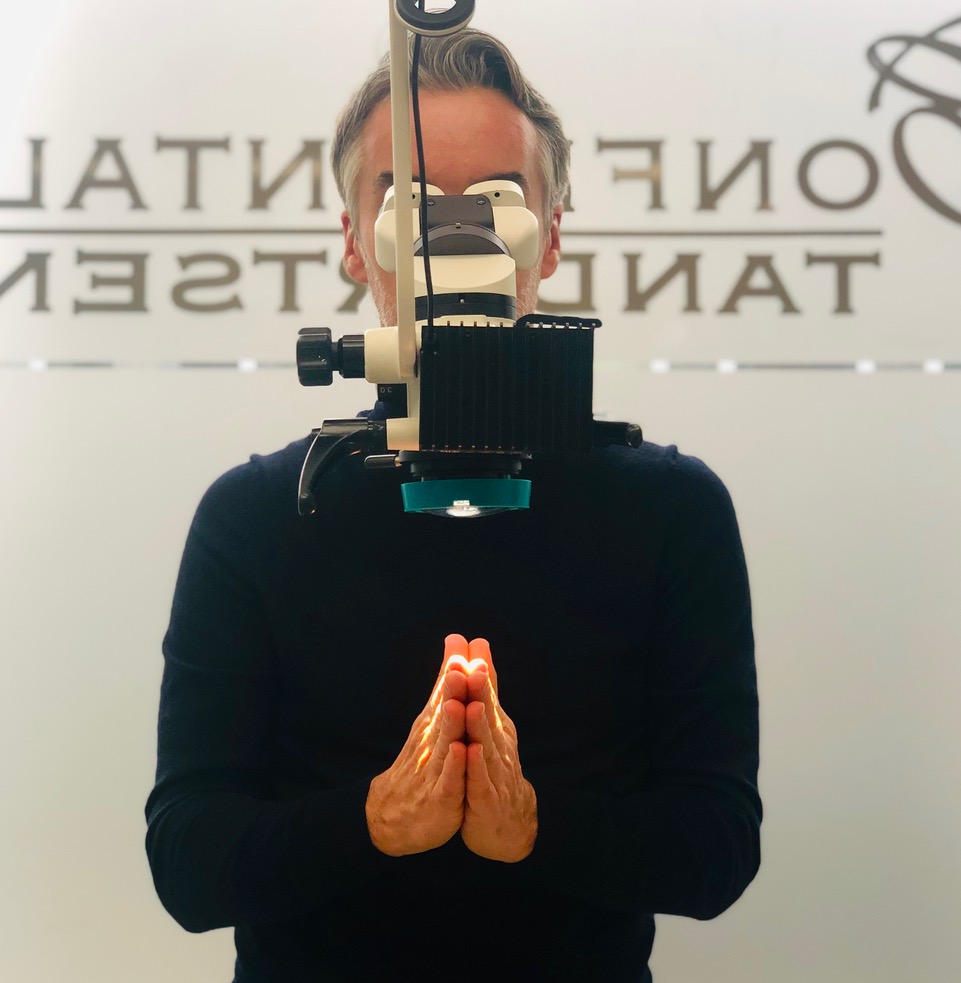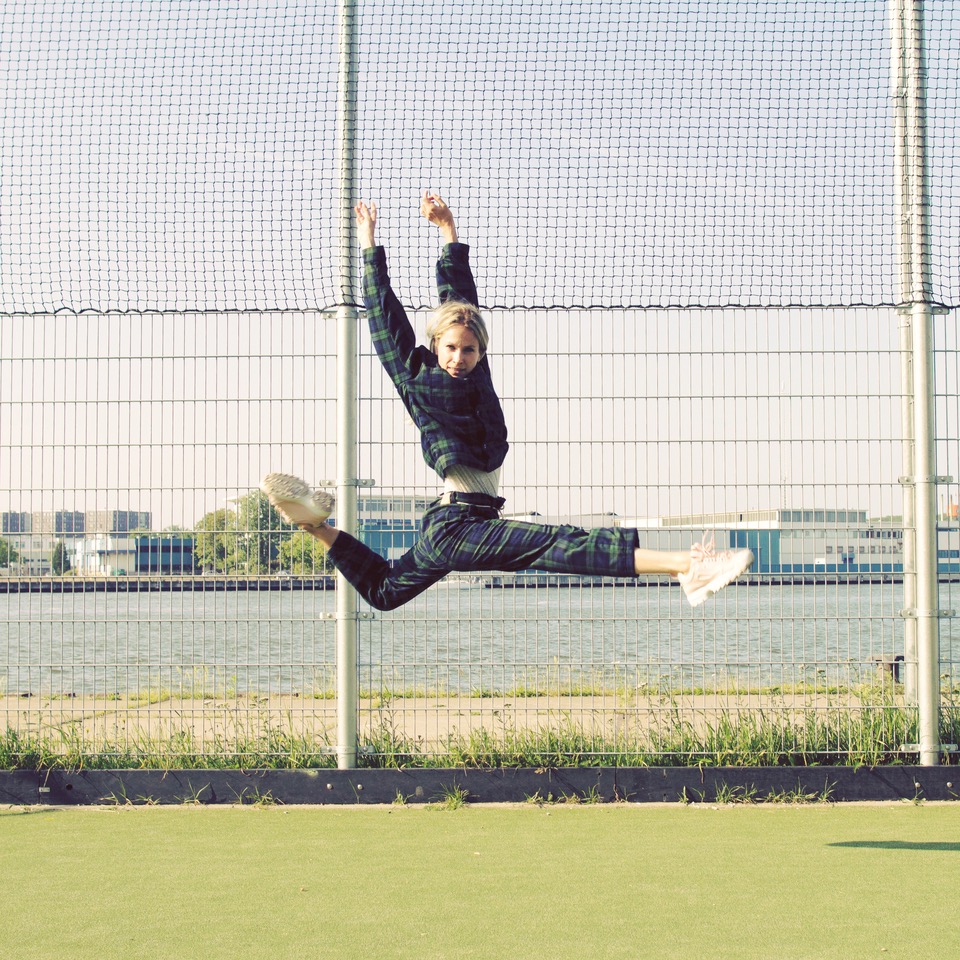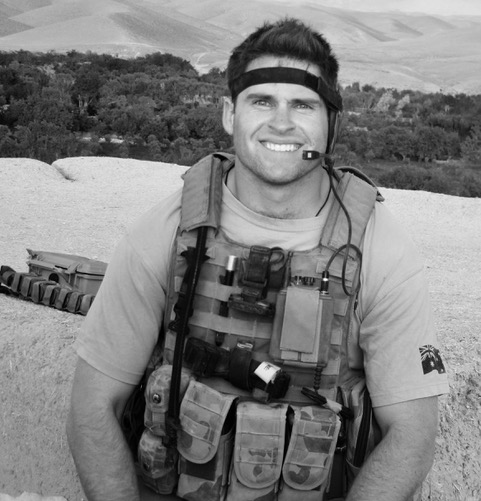Who is who
Dr. Martijn Groenink Sammels: 54, former life science researcher (PhD), currently a dentist
Pascalle Paerel: 29, former Dutch National Ballet dancer, currently a model agency owner (The Fashion Composers)
Tristan P. Rose: 35, former Australian soldier (Afghanistan veteran), currently a deep sea commercial diver and yoga & meditation facilitator for Australian veterans and first responders
Anna Dukhanina: 35, currently a yoga studio owner & teacher
1. How has discipline played a role in building your career?
Martijn: I started my career in life sciences in the 80s. As a PhD student I studied genomic differences of HIV in relationship to differences in disease development. In those days there was no treatment for AIDS and the outlook for people with HIV was pretty grim. It was a very competitive area of research and the stakes were extremely high. Self-discipline allowed me to give my full attention to my research and to be mindful in my day-to-day work routine. During my training as a dentist self-discipline kept me focused and it kept me happy. I really loved my dental studies and I wanted to become a good dentist.
Pascalle: Discipline is a word that I hated when I was young when I heard my mother, school teacher or pretty much anyone mention it to me with the intention of getting me to do more. But now that I am a bit older, I realize that because of discipline (combined with love for what you do) you can achieve so much and live a happy and fulfilled life. I definitely don’t believe that discipline is the (only) key to success and a happy life, but it played a big role in making my dreams come true. I feel very fortunate to have had a career in something I love so much.
Tristan: Discipline is one of the foundational tattva (principles) in all work ethos. If it lacks in an individual or a team environment, it becomes one of the weakest links which ultimately is how well you can or cannot operate. The saying of ‘you are only as strong as your weakest links’ rings true to me. If you don’t have varying degrees of discipline, you are working towards failure.
Anna: I am not a fan of the word “discipline” in general as for me personally it has a little of a feel that it is forced upon with a military feel (maybe because I was born in USSR I am little allergic to this word 😊 ).
Personally I do prefer the direction of dedication and curiosity with a pinch of hard work.
Definitely being curious and interested is something which has played a big role in building my career.
2. How does the discipline in your professional life translate to your personal life?
Martijn: Sometimes life and work can be quite demanding. My wife and I have a beautiful 14 year old daughter. Since her birth my wife works abroad 14 to 18 days a month so maintaining a happy family life, raising my daughter and taking care of my dental clinic during those days demands a high level of discipline and organization.
Pascalle: It depends, after years of performing and working extremely hard with constant exhaustion, I would come home and not want to do anything. Sometimes walking to the kitchen and getting a drink was too hard already (haha). In general I think I’m an ambitious woman, although only in the things that I like or really want.
Tristan: These both correlate. If you cannot have the discipline to action things in your professional life to a degree that is acceptable, they will certainly be worse in your personal life. Standards slip when your discipline in your chosen area begins to fade. This is also true to your relationships with friends, family and loved ones. It is a life-long practice.
Anna: I am definitely more structured in my professional life than in my personal life. In my personal life I sometimes just take a break and embrace the chaos.
3. Name one significant sacrifice you’ve had to make in your professional or personal life.
Martijn: In our society life can be pretty stressful and demanding. I have to be a loving father, a good husband, have a successful career, be a good employer, an excellent dentist, have a lot of friends etc. Sometimes it’s difficult to find the right balance. Sometimes sacrifices have to be made.
Pascalle: Moving out of my family home when I was 12 years old and always feeling tired.
Tristan: Putting others before myself. This was a sacrifice that actually affected both my personal and professional life.
As a leader of a small team of men in hostile areas of the Middle East, putting my men’s welfare before my own was always paramount. Eg. if it meant limited supplies: they all ate, showered, spoke with family back home, had all their administration requirements and house in order before I tended to my own.
They always came first and if it meant me going without, it was never a second thought to put their welfare first.
A true leader will always choose the worst work task to complete out of all the jobs to be assigned, not to save their team the discomfort or annoyance of fulfilling it, it would show that in the case that something was asked to be done, they would understand this is what needed to be done and with no complaints.
Leading by example. If a disciplinary action was to be delivered, you would do the same alongside them.
Anna: I will not call anything so far a sacrifice, though in many moments I am working on letting go of things I think I desperately want or need.
Often life usually proves that letting things go was the best option with the most beneficial outcome.
4. What role does discipline play in your daily life?
Martijn: See question 2
Pascalle: I never really felt like I really had a youth like other people my age (feeling free, partying, not paying attention to what I was eating etc). I also had to put dancing first beforefamily and relationships.
Tristan: It shapes the very fabric of my existence. If I don’t have the discipline to my routine, my practice, my study, treating specialists etc I deteriorate rapidly. I’ve found that if I don’t adhere to a strict routine or take any time off my body sends me some intense signals that I need to re-calibrate.
Anna: I won’t call it discipline, but I do practice regularly and do many other regular activities which I am dedicated to or focused on.
For me it comes from a place of doing something which I am interested in with dedication rather than calling it discipline (one more time, it is just not my favorite word 😊 )
5. Do you find it easy to relax and unwind?
Martijn: As I grow older it becomes easier to relax and unwind, to put unpleasant experiences in perspective and to remember what really counts. In the year 2000 I discovered yoga. Practicing yoga helps me to stay in a healthy physical and mental state. Even “off the mat” it helps me on a daily basis.
In general, maintaining self-discipline gave me a higher level of physical and mental wellbeing, even happiness. But one should not forget that sometimes an even higher level of self-discipline is required to relax or unwind!!
Pascalle: When I was dancing I could completely relax when I had a free day but also because my body really needed it. Now that I don’t move as much as before, at the end of the day it can feel like I haven’t done much, even when I’ve worked and studied for hours. I can still relax, however I feel a little less comfortable with it since I am physically not that tired anymore.
Tristan: There was a time, when it was extremely difficult to do without intoxicants. At a stage when hypervigilence was a dominant frame of mind I relied heavily on alcohol to unwind and slow the mechanisms that were in place.
Fast forward to here and now, no problem. A few moments is all I need to slow that pace down and not be reliant on anything. I take time off regularly and for a type A personality that is always in motion, the value of stopping and resting is just as important.
Anna: It depends 😊 I do find it difficult.
As they say “when the shit hits the fan, you do wish you have meditated (or did any other type of self practice)”
6. What activities help you stay focused (sport, yoga, meditation, study)?
Martijn: see question 5
Pascalle: I am very happy to have the time now to practice Yoga. It is the perfect way for me to transition from ballet into ‘normal’ life without feeling out of shape as yoga has similarities with the professional ballet classes at the start of the academy. I realize that physical practice is important for me to stay happy and feel energized and fit. Even though I don’t always feel like it, for me it is a natural healer in every way.
Tristan: Alone time. Seclusion.
In a world where everything is so accessible and demanded promptly, being alone and finding seclusion is a must. A time set aside with no technology in nature and reflecting.
A dedicated meditation practice, do-not-disturb hours, staying in contact with friends and spending as much time as I can with my dog.
I call Sundays “Self-care Sundays”. I go for a Thai massage and float tank then read a few books. I make sure Sundays are kept for me and those in my inner circle. Spending a large portion of my week helping others, Sunday is a day where I can just be. Whether I’m diving or connecting with the ocean or clearing my mind for the week to come. Chance favours the prepared mind.
Anna: Definitely any kind of movement. It can be yoga, sports, skiing, boxing, hitting the gym or anything else. Doing it mindfully increases the benefits. I do cherish this time for myself.
I enjoy travelling and nowadays this is more because of the people I meet than because of places I see.
I also enjoy festival cinema and art a lot.




